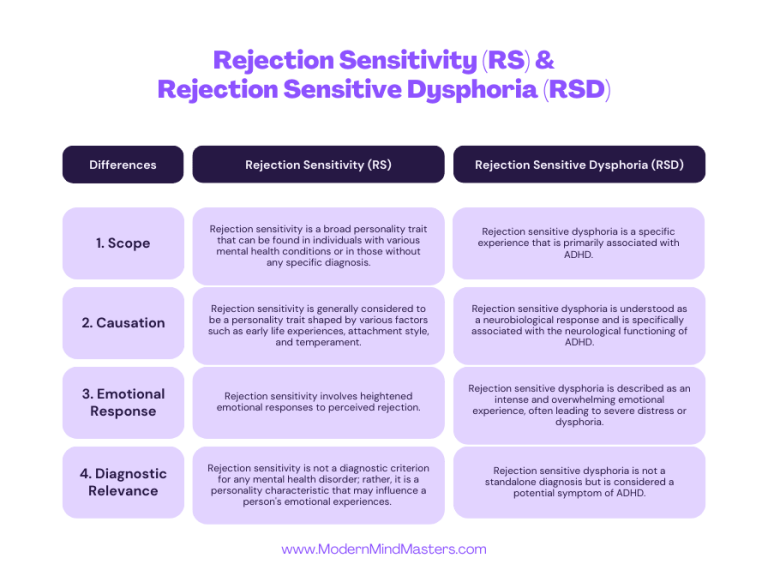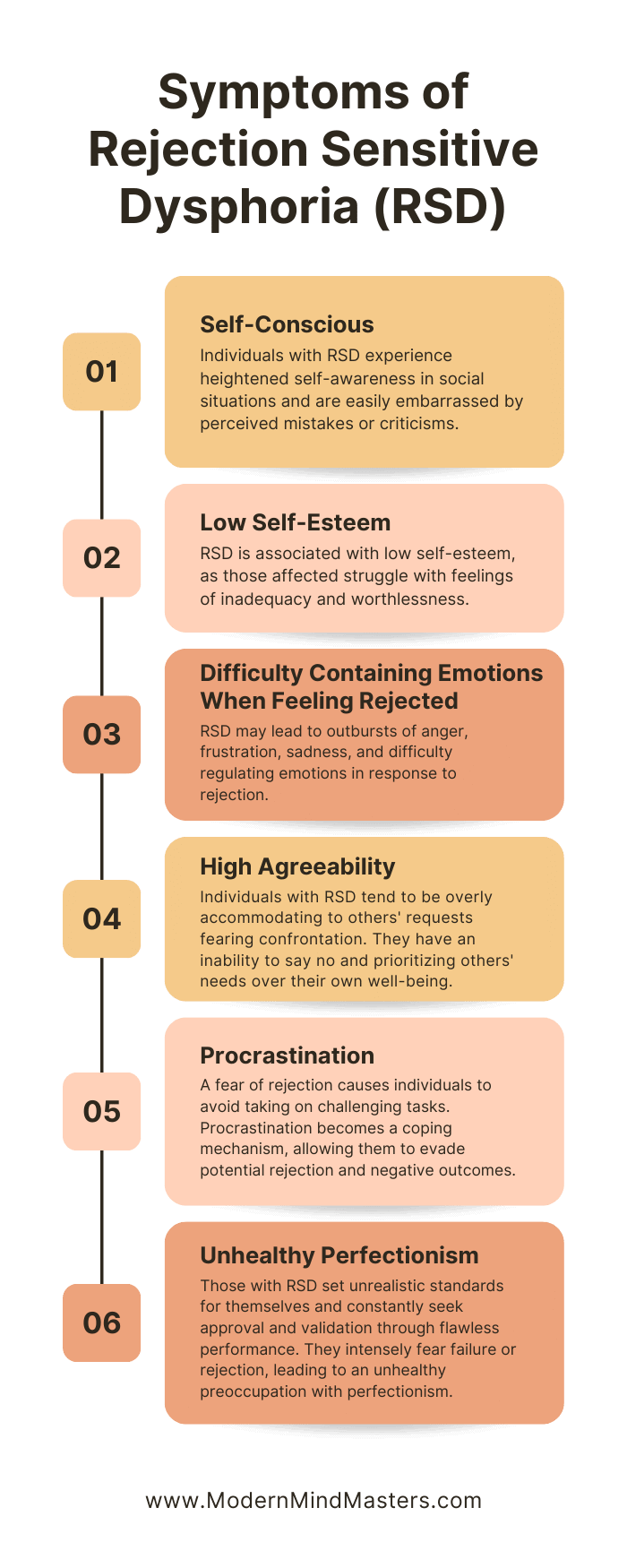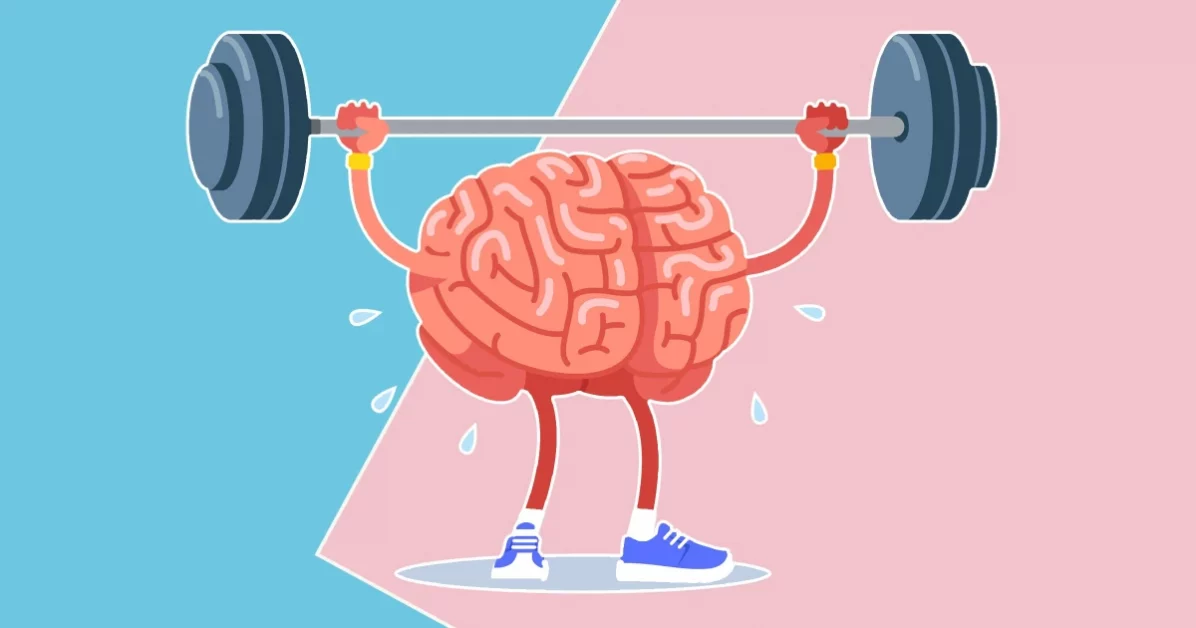
The Ultimate Guide to Personal Development
If you are not learning, you’re not earning. This guide to personal development will provide the knowledge and tools to take you to the next level.

Nobody likes to be told no; whether asking someone out for a first date or applying for a new job, the fear of rejection often induces anxiety and apprehension.
But for some, this fear is taken to a whole new level. Where a minor rejection would disappoint the majority for just a few minutes or hours, a small but certainly not insignificant proportion essentially shut down, and might be unable to overcome these feelings for days or weeks. Even worse, the fear of failure might stop them from trying altogether.
These people suffer from Rejection Sensitivity (RS), that is, they are particularly sensitive to rejection above normal levels (we all are healthily sensitive to rejection to some degree). Some have attempted to assign a concrete condition to it, hence the increasingly popular term Rejection Sensitive Dysphoria (RSD).
The line between a healthy fear of failure and a physiologically crippling one is difficult to identify, and as a result, RSD is not an officially recognized disorder. But that doesn’t mean it should be disregarded completely; those who suffer from rejection sensitivity might find it easier to treat if it were found to be a genuine neurological mechanism.
This article will overview the complex and sometimes controversial field of rejection sensitivity, highlighting its significance while remaining grounded in the realm of objective science.
While RSD may not yet be an officially recognized term, rejection sensitivity has been broadly studied, as well as its potential correlation to other similar disorders, such as Attention Deficit Hyperactivity Disorder (ADHD), for which treatment is available.
So sit back, grab a coffee, and fear not; while the concern of not finding a solution in this nascent and relatively unexplored field may fill you with trepidation, there are some treatments and solutions we can draw from related fields that may prove to be just what you are looking for.
Rejection Sensitivity is a term used to describe an intense emotional response to perceived rejection or criticism. When your boss asks you to rewrite a couple of paragraphs of your report, most wouldn’t think twice about it. For those with rejection sensitivity, however, this would feel like a direct attack that might last days or weeks.
For those without rejection sensitivity, these extreme emotional responses might appear irrational, highlighting the need to investigate what causes it and how to overcome it.
RS is variable; those with high levels tend to be hyper-focused on any signs of rejection, often finding it in situations where it was not intended.
Like most forms of emotional dysregulation, where the brain cannot properly regulate the signals related to emotions, it is commonly seen in personality and mood disorders and often linked with ADHD because of its similar symptoms.
Rejection Sensitivity Dysphoria (RSD) represents an attempt to identify this condition as its own diagnosis. While not (yet) medically recognized, it is a commonly used term that many experts use in connection with recognized conditions. Humans crave to understand things in black and white, and RSD is an attempt to identify and categorize complex feelings and mechanisms into an easy-to-understand disorder.
RSD is often associated with certain conditions, particularly ADHD, and recent research has attempted to investigate how closely such conditions are related. A lot of online literature identifies RSD as a symptom of ADHD, although this is not accurate according to the latest medical information in the DSM-5 for diagnosing ADHD.
Rejection Sensitivity, therefore, is a general psychological term to describe heightened sensitivity to rejection across individuals, while Rejection Sensitivity Dysphoria attempts to describe intense emotional responses specifically in the context of rejection or failure.
While rejection sensitivity can be a normal variation in human behavior, RSD indicates the belief of an underlying condition that requires specific attention and support.

The short answer is no, RSD is not a medically recognized condition. There is much division between the academic scientific world, which does not recognize it as a valid scientific concept, and the psychiatric world, which uses it as a tangible concept to deal with real problems.
Instead, RSD can be thought of as conceptual, in the same way that the mind or our subconscious is commonly used to describe intangible concepts, such as suppressed childhood traumas. While the subconscious mind may not physically exist, it exists as a concept to better understand and treat complex neurological conditions.
Rejection sensitivity can occur across many different disorders, including Major Depressive Disorder (MDD), Post-Traumatic Stress Disorder (PTSD), and Social Anxiety Disorder (SAD), all of which may alter the symptoms of rejection sensitivity.
Those with PTSD, for example, have been documented to experience anger or impulsiveness in response to rejection. Those with depressive orders, on the other hand, may become more anxious or withdrawn.
Rejection sensitivity can be demonstrated before, during, and after any interaction. For example, when your boss asks to meet you first thing tomorrow morning, a rejection-sensitive person may develop severe anxiety in anticipation of rejection, even though none was implied. They will run through all the worst-case scenarios in their head, such as getting fired.
During the meeting, any neutral or vague comment will be treated as rejection, and they will react accordingly. If your boss asks you to focus more time on project X, for example, you may interpret this as you not performing this project well enough. For all you know, the boss simply wants everyone to spend more time on this project.
After the event, you may react to these (often misplaced) feelings of rejection with anger, sadness, or severe anxiety. It may also take a long-time to overcome and, if the rejection response is severe enough, may stick with you in your unconscious memory to negatively affect similar future situations.
While RSD has already been established as a concept and not a (currently) diagnosable disorder, those who identify with RSD report common symptoms, including:
Naturally, some are more sensitive to rejection than others, leading to variations in behavior, well-being, and relationships with others. Someone with rejection sensitivity may show just one of these behaviors but very strongly, making it more noticeable than another who experiences many of them but more mildly.
To make matters more complex, many of these symptoms are shared with other disorders, such as ADHD, making appropriate diagnoses even more difficult.

The exact neurological mechanisms for rejection sensitivity are not yet fully understood as its development is likely a mixture of genetic and environmental factors (such as previous social interactions). Experiences of rejection sensitivity are very subjective, making it difficult to identify precise causes.
Research has suggested, however, that certain brain regions and neurotransmitter systems play a common role in the experience of rejection sensitivity. The amygdala, a part of the brain involved in processing emotions, such as fear and threat detection, is commonly thought to instigate heightened fears of rejection when overactivated, making them more prone to interpreting ambiguous social situations as potential threats of rejection.
Other studies suggest that variations in the oxytocin system, active when involved in social bonding and attachment, might influence sensitivity to rejection and social exclusion.
Psychological research suggests that previous experiences of social isolation may be a cause. As social animals, we are hardwired to seek and maintain strong and stable relationships to feel safe.
Both individual safety and the prosperity of the species at large rely on the strength of the troop. While modern society may have made it safe to prosper as an individual, our biological systems have not evolved and adapted at the same pace, meaning we still crave the social inclusion of a group.
Severe or repeated social rejection (being disliked or ostracized) and isolation are causal factors in almost all psychiatric disorders; this study describes how sensitivity to social rejection is a diagnostic criterion or feature of social anxiety, major depression, borderline personality, avoidant personality, premenstrual dysphoric, bulimia nervosa, body dysmorphic, acute suicidal ideation, and substance/alcohol use disorders.
Feeling disliked or left out can make these rejection sensitivity conditions worse or more persistent. The COVID-19 pandemic, for example, with its isolation measures, has had a notable impact on mental health, especially among young adolescents who rely on peer support during crucial development periods.
Rejection sensitivity (and therefore Rejection Sensitive Dysphoria) is commonly associated with ADHD because they tend to share common symptoms.
In fact, many classify RSD as a direct symptom of ADHD, although The Diagnostic and Statistical Manual of Mental Disorders, Fifth Edition (DSM-5), the standard classification of mental disorders, does not recognize it as a symptom of ADHD, nor a separate disorder.
There are five key similarities between rejection sensitivity and ADHD, however, that need to be further investigated to gauge any possible relationship.
While these symptoms are only anecdotal comparisons between RS and ADHD (there is no scientific link to prove the correlation), rejection sensitive Dysphoria (RSD) may simply be the emotional dysregulation that sometimes accompanies ADHD.

Perhaps the most thorough research on rejection sensitivity and its possible link to ADHD is through this study which explored the relationship between rejection sensitivity and attentional disruption to social threat cues, a known symptom of ADHD.
Highly rejection-sensitive individuals were shown to be vulnerable to disruption of goal-directed attention, slowing performance on simultaneous tasks, and attentional avoidance of social threat stimuli (stimuli or signals in the social environment that could be perceived as emotionally harmful).
The research suggests that patterns of attentional disruption associated with RS may contribute to the development and prolonging of psychological difficulties, such as anxiety, mood disorders, and ADHD.
The text also highlights that attentional avoidance of social threat stimuli is associated with high RS, likely reflecting efforts to regulate the experience of threat and reduce emotional arousal and distress, particularly in conflicted, close relationships.
The increasing need and want of research for rejection sensitivity is ultimately leading to one point – to find a treatment or way to manage it.
Researchers are exploring how certain neurotransmitter systems in the brain, like opioids and oxytocin, might be involved in social behavior and resilience. Targeting these systems could help break the cycle of rejection and loneliness, leading to faster recovery and improved mental health.
Prescription drugs are the most common method of treating most mental disorders. Because of the suspected close relationship between RS and ADHD, it is little surprise that the drugs used to treat rejection sensitivity are the same as those used to treat ADHD, namely Ritalin, and Adderall.
Because RSD isn’t an officially recognized medical condition, there aren’t any medications specifically approved to treat it. Instead, healthcare providers use a practice known as “off-label prescribing”, meaning they prescribe medications for conditions similar to ones they’re specifically approved to treat.
This kind of prescribing is acceptable and justified when the risk of causing harmful side effects is thoroughly accounted for by a practicing professional.
For RSD, such off-labeling prescriptions might include, alpha-2 receptor agonists, which target and stimulate alpha-2 adrenergic receptors in the brain, and stimulant-type medications, which increase the levels of certain neurotransmitters, such as dopamine, in the brain.
As always, the complexity of rejection sensitivity, ADHD, and mental disorders as a whole means it is essential to seek qualified medical advice before taking any form of treatment. Prescription drugs such as Ritalin, while an effective treatment in the correct application and dosage, have negative side effects that can outweigh the benefits when not correctly administered.
One part of rejection sensitivity is thought to occur for psychological reasons, such as past experiences with rejection and failure, especially during younger years. As such, psychotherapy is thought to be one way to attend to these psychological symptoms.
Cognitive Behavioral Therapy (CBT) is one of the most common types of therapy, a widely used and evidence-based approach that focuses on identifying and challenging negative thought patterns and behaviors.
For rejection sensitivity, CBT can help individuals recognize and reframe irrational beliefs related to rejection, reduce sensitivity to perceived rejection, and develop more balanced and realistic interpretations of social situations.
Other forms of therapy might include Dialectical Behavior Therapy (DBT) and Interpersonal Psychotherapy (IPT). Therapy is well worth looking into before trialing prescription drugs.
Medication and therapy are significant commitments that may put many off seeking treatment for rejection sensitivity. But this 2015 study found that dispositional mindfulness, a concept that involves being nonjudgmental, accepting, and aware of one’s present experiences, can be beneficial in combating some of the mild symptoms of rejection sensitivity.
The study focused on 451 undergraduate participants who completed self-report measures of rejection sensitivity, dispositional mindfulness (the tendency to be mindful in everyday life), and trait-level negative affect (where individuals are more likely to experience negative emotions frequently and intensely in various situations).
The researchers looked at how mindfulness (the ability to be aware and present at the moment) is related to rejection sensitivity and found that people who are more mindful tended to be less sensitive to feeling rejected.
One specific aspect of mindfulness called “nonjudging” had the strongest effect, where an individual is open to experiences without being too critical or judgmental of themselves. People who were good at being nonjudgmental were less likely to feel strongly rejected by others.
Moreover, the study showed that those high in nonjudging were able to protect themselves from the negative emotions that come with feeling rejected and didn’t experience as much negative emotional impact when feeling rejected. On the other hand, people who were low in nonjudging felt worse when they felt rejected.
Overall, the findings suggest that being mindful, especially in a nonjudgmental way, can help protect against feeling too sensitive to rejection and its negative effects.
The study suggests that mindfulness-based therapies that focus on nonjudgmental awareness might be helpful for people who struggle with feeling rejected. It is important to note, however, that this was just a one-time study, and more research is needed to understand the cause-and-effect relationship between mindfulness-based treatments and their effect on rejection sensitivity.
Meditation has long been used as an accessible way to practice mindfulness. If mindfulness-based therapies are too large of a step, practicing meditation might be a good way to at least make a start.

Rejection sensitivity, or RSD, is a phenomenon where the fear of rejection alone can shut an individual down completely. While most of us may feel a bit down after being rejected, these feelings are healthy, whereas those with RSD can shut down for days or weeks and fear failure to the point of avoiding new challenges altogether.
Even though RSD isn’t officially recognized as a disorder, it’s still a useful concept for those who struggle with intense emotional responses to rejection or criticism. Understanding rejection sensitivity is essential in the realm of mental health, and it may even have a connection with Attention Deficit Hyperactivity Disorder (ADHD).
While the scientific community may be divided on the validity of RSD, it can be helpful for many to think of it as a concept to help navigate complex emotions. Only by understanding it can we begin to effectively treat it.
If you find yourself experiencing rejection sensitivity, fear not! There are ways to tackle it. Medications commonly used for ADHD may help, but psychotherapy, like Cognitive Behavioral Therapy (CBT), can also work wonders. If these are too scary, nonjudgmental mindfulness, where we practice accepting our experiences, can help shield us from the negative emotional fallout of rejection.
So, whether you’re dealing with rejection sensitivity or just everyday rejections, remember to stay mindful – rejection is a part of life, and when we begin not to fear it, life becomes so much easier and enjoyable.

If you are not learning, you’re not earning. This guide to personal development will provide the knowledge and tools to take you to the next level.

While social media can be a powerful tool, many end up abusing it to the detriment of their mental health, contributing to depression, anxiety and addiction.

Do you really need fiber, or is this simply an overhyped myth? Science and anecdotal evidence now suggest the body can run better without it when on a low-carbohydrate diet.

Emotions stem from the limbic system, an impulsive and primal part of the brain that is extremely powerful. Unfortunately, no one teaches us how to manage emotions, but thankfully these books will.

Explore practical strategies on how to overcome laziness, embracing laziness as natural and tackling it with rest, planning, and reframing success.”

While Intelligence is linked to success, it is genetic and cannot be significantly improved. Persistence, therefore, is what we must focus on.
© 2025 Modern Mind Masters - All Rights Reserved
You’ll Learn:
Effective Immediately: 5 Powerful Changes Now, To Improve Your Life Tomorrow.
Click the purple button and we’ll email you your free copy.